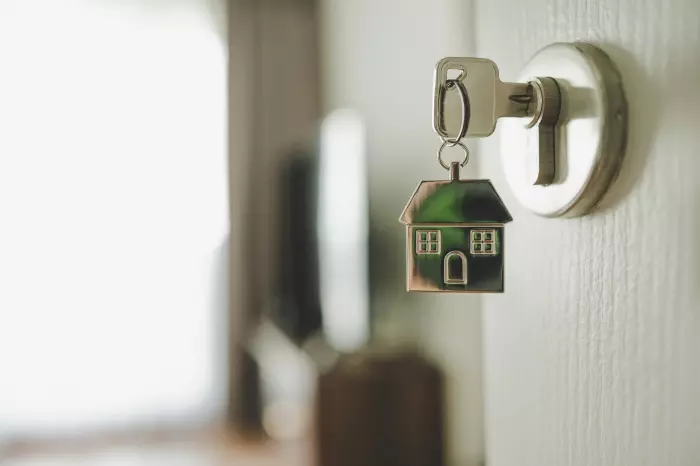BusinessDesk investments editor Frances Cook responds to emails from readers each week to answer questions about money. Below, you will find her expert advice. Send your own questions to [email protected].
Hello Frances,
I've just come across your content on Facebook and am really enjoying your little tidbits!
What advice would you give me, besides all the obvious things like paying down debt, to get myself and my family into our first home at the end of next year?
I'll give you some background:
I am a single parent of two children. I work as a bookkeeper and am paid fairly well.
I also get a Working for Families tax credit and an accommodation supplement but can only work part-time because of my full-time parenting gig. I am also studying part-time towards my Bachelor of Accounting. I am very time-poor and can't think of any ways in which I could increase my income.
I currently rent a two-bedroom flat, which I have been in for over five years.
The boys share a large room. The rental market is nuts, and my rent hasn't increased in the entire time I've been here so there's never been an incentive to move into a different rental.
There is an eight-year age gap between my sons, and while they are fine sharing a room, my concern is that my oldest will leave home as soon as possible if he doesn't end up with his own space, and then he will fall into the same financial traps that I did (don't even get me started, I knew nothing back then and regret all of it!). I would like him to be at home as long as possible.
Plus, I would really like some security and to make my house a proper home and to get a dog.
I have enough in my KiwiSaver for a 5% deposit (along with the first-home grant) if I did the Kāinga Ora First Home Partner scheme. I have no idea what the banks would realistically lend me but I'm hoping to look at homes between $400k and $450k. Interest rates need to drop first.
I have some debt to pay down first, but I feel like it's achievable. Is it? Or is it just a pipe dream for someone like me?
C.
Hi C,
I say this with love: please never let the question ‘is this for someone like me’ be one that you consider again. On any topic.
It is absolutely for you. It is always for you.
Sometimes there may be difficult decisions to make it happen. Some of us face more hurdles to get there. Sometimes you will need help from your community. Sometimes you’ll have to weigh up what you really want.
I'm not saying it's easy; I'm just saying that it's possible.
You absolutely can have it, and you deserve that safe secure home environment for you and your boys (and your future dog).
Debt
You’re right to focus on paying down debt. Banks don’t like to see debt on your account, and when they’re calculating how much they’ll lend you, debt can have an outsized impact.
If you have a loan payment of just $100 a week, it can wipe off around $60,000 from how much the bank would have approved you for a mortgage. That’s because the bank assumes you’re going to keep paying that back for the foreseeable future and takes it out of what it assumes you can afford.
Worse, a credit card that you don’t even use can have an impact. A credit card limit of around $10,000, even if you never use the card, is still seen by the bank as your “debt potential”. As in, you could get into debt for that at any time.
The last time I checked, a $10,000 limit wiped off around $50,000 from how much they would loan you for a mortgage. A higher limit wipes off even more.
So, paying off things like credit cards and car loans is a good idea, and either reducing limits or closing credit cards if you don't need them.
If you have accounts like AfterPay, when you get closer to applying for a mortgage, it can often be a good idea to shut them down. The banks really dislike those accounts and often take them as a red flag for poor spending behaviour.
Best behaviour
Speaking of banks getting a little judgmental, it’s also good to know that you might need a small crash diet before you head in for that final mortgage application.
Banks will often review at least three months of your bank account statements, to get an idea of your spending.
They want to be sure that you’re a good credit risk, and good at staying on a budget.
So, for the three months before that application, it can be a good idea to shut down any unnecessary spending, boost your savings, and avoid spicy spending like gambling.
Think of them like a judgmental parent and avoid anything that might raise an eyebrow.
Affordability
Next, huge congrats to you for managing to be a single mum, work, and study. I truly don’t know how you do it, and I’m not surprised that you say you’re time-poor. I bet!
The only other option I can think of is the possibility of a flatmate. Not now, considering that you’ve already got three of you in a two-bedroom. That would be rather cosy.
But it could be a possibility in the new house. It could help keep bills down for a while, as you adjust to the new situation.
Banks will take this into account on your application, and it can mean an easier time getting approved.
You may well be choosy about who you want around your sons, which I wouldn’t blame you for. But there’s a possibility that close friends or family would be interested, which would make it more doable.
If you have a back garden in the new house, there's also the possibility of renting it to someone with a tiny home.
Just one possibility to consider.
Talk to the bank early
I would also arrange an appointment with a mortgage broker, either an independent one or one at your current bank.
I know you are thinking about this house purchase happening in about 18 months, but I would make this appointment now.
It won’t cost you anything (mortgage brokers charge the bank, not you), and you don’t have to be going ahead with the mortgage right away.
It can simply be a check-in for ‘how do my finances look now, and what do I need to have ready by the end of next year’.
They can go through your debts, your income, current house prices, and do the calculations that the bank will do when it comes time to get that mortgage approval. They can tell you exactly what you could be approved for now, how much it will cost you, and any red flags in your financial history.
Then you have more than a year to fix them. As someone who’s already had mistakes that she’s fixed, I’m sure you know, the more time you have the easier it is to sort these things out.
Sometimes banks get funny about you buying on a single income. Yours may be high enough that that isn’t a problem, or it may not.
Either way, best to know ahead of time because there are usually ways that you can make it look better to pass their tests. A broker can help you with that.
There can sometimes also be a penalty such as a higher interest rate applied when you have a lower deposit. Again, best to run those numbers with a professional, and see what it looks like, and what it means for your budget.
Give yourself the gift of time and preparation. It only costs you the time of an appointment, and some of them will even do it over the phone.
It’s an investment in your knowledge that will likely pay off big time.
A personal note
On the topic of your oldest son, I can’t stop myself from giving you a gentle nudge to release some pressure on yourself, to save him from your mistakes.
As a parent twice over, I’m sure you’ve already seen that children tend not to do what we tell them to do. But they do copy, with horrifying accuracy, what they see us doing.
You’re already showing him the value of hard work and how you can recover from financial mistakes. You’re setting a wonderful example. I truly believe you’re already doing the most that you can on this front.
In our household, we refer to ‘non-fatal learning experiences’.
I want to stop my son from doing all sorts of things that I know are terrible ideas. But sometimes I have to step back and let him do them, under my supervision, so that I’m ready to swoop in and cuddle the tears away after he’s learnt exactly why I’ve been saying not to do it.
It’s better than it happening when I’m not there, and being a much worse version of it.
The unfortunate reality is that your son is going to make financial mistakes. Not maybe. He will. The only variable is how big those mistakes are.
You’re living proof that these mistakes don’t have to be fatal and can sometimes be part of what pushes us to do more and become more successful than we would have otherwise.
Sometimes we need these learning opportunities in order to grow.
The best thing you can do is talk to him about what you’ve learnt about money and welcome open conversations on the topic. This way he’ll have a better idea of how to recover when the inevitable mistakes come, and he’ll also know that he can come to you for advice.
It may take a few years, of course, before he realises the value of your wisdom. Again, such are children.
Until then, best of luck with your home-ownership journey. I absolutely think you can make it happen, it’s just a matter of when.
Send questions to [email protected] if you want to be featured in the column. Emails should be about 200 words, and we won't publish your name. Unfortunately, Frances is not able to respond to every email received or offer individual financial advice.
Information in this column is general in nature and should not be taken as individual financial advice. Frances Cook and BusinessDesk are not responsible for any loss a reader may suffer.














